Tomb Raider's Daniel Wu: “I Want To Represent Modern Asians... The Idea That Every Asian Has To Have A Terrible Accent Is An Antiquated Idea”
The Hongkong-based, US-born actor-producer, 43, on why his daughter will get a kick out of his latest movie, the video game flick Tomb Raider.
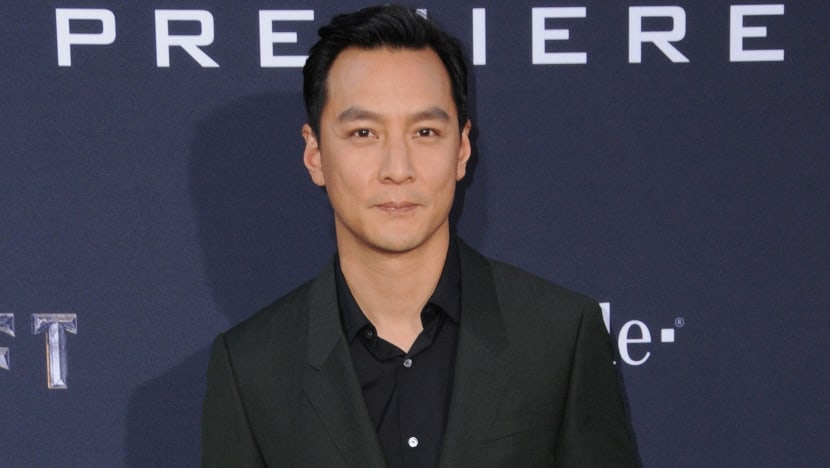
Daniel Wu
When 8 DAYS spoke to Daniel Wu last month, it was on the seventh day of the Chinese New Year. While some of us (like this writer) were still in the festive mood, Wu was busy working in Dublin, Ireland. At least, that was what we assumed he was there for — to film his TV show, the martial arts-Western mash-up Into the Badlands, now in its third season. Seriously, if you were on your day-off, would you wake up at eight in the morning for a phone interview with someone from another corner of the world? Then again, maybe he was on his day-off and that he loves to chat. But, as much as we loved to chit-chat, we only have 10 minutes to ask him about his experiences working opposite Alicia Vikander in Tomb Raider, the live-action remake of the video game, and little else. The Berkeley, California-native, who started his career in Hongkong, is no stranger to big Hollywood productions. He was in Warcraft: The Beginning, another video game adaptation, where he gave a motion-capture performance as an orc, and Geostorm, the Day After Tomorrow-wannabe disaster thriller, where he was on-screen long enough for us to realise that the special effects weren’t the only thing that weren’t very good. But it’s in Tomb Raider that he plays his most prominent role (you know your role is significant when you have your own character poster).
Tomb Raider poster featuring Daniel Wu
8 DAYS: In Tomb Raider, you play Lu Ren, a sailor who joins Alicia Vikander’s Lara Croft on a race-against-time adventure. How did you get the part?
DANIEL WU: I was just finishing up the second season of [post-apocalyptic martial arts drama] Into the Badlands when they offered me the part. At the time, I was planning to take a break, but it was such a good opportunity that I just decided to take it. So two weeks after wrapping Into the Badlands, I was in South Africa shooting Tomb Raider.
Daniel Wu and Alicia Vikander in Tomb Raider
Shooting in South Africa must’ve been an incentive: You and your wife Lisa S were married there, and you have a house there as well.
Yes, that was a huge reason why I did the movie. There are three reasons why I did the movie. The first is Alicia Vikander; I’ve always wanted to work with her. The second was South Africa, and the third was the Tomb Raider franchise. So the location and the idea of being there for four-and-a half to five months was really exciting to me, especially to be in Cape Town. I’ve never really spent much time in Cape Town before, so that was great, and it was such a beautiful place to be filming.
Daniel Wu in Into The Badland
I’m so glad that Lu Ren isn’t a stereotypical Asian who speaks broken English. Was that in the script?
Kind of, but it’s also something I insisted on as well. I said [to the producers] that I wasn’t interested in playing him if they wanted me to do a Chinese accent. I want to represent modern Asians, and the idea that every Asian has to have a terrible accent is an antiquated idea. Obviously as you know, even people that grow up in Asia, like in Singapore or Hongkong, can speak perfect English. It doesn’t mean that you have to grow up in the United States to speak fluent English.
You’ve done action most of your life, so working on Tomb Raider must’ve been a walk in the park.
The action part was pretty easy. What was hard was [me learning] to drive a boat, which I actually didn’t have to do in the movie because it was all at the sound stage. The first time I drove a boat [out in the harbour in Cape Town], someone watched over me. But the second time, it was just me driving by myself. But the idea of going out [to the sea] gave me clarity on my character. I had a lot of time to think about and imagine the kind of lifestyle someone who lives on the ocean has, and how his mind works. So that was an eye-opening experience for me.
The action is very different from what you did on Into the Badlands.
[The action in] Into the Badlands is very kung fu-oriented, and I didn’t want to make Lu Ren a kung fu guy because I don’t want to do that stereotype where just because he’s Chinese, he knows kung fu. In fact, they asked me if I wanted to throw some kicking or wire work in, and I said no, because I think this character should be very different from what I did on Into the Badlands. And so, he’s a fighter. He’s a scrapper. He’s somebody who fights in bars probably a lot, but he’s not a kung fu guy. So we changed the action to make it more realistic and grounded.
How has working in Asia helped you in Hollywood?
I’ve had 20 years of experience working in Asia in all different kinds of films. That really made me who I am. I think there’s no doubt that my Hongkong career is really what made me in China and everywhere else. So all that experience I gained working with awesome Hongkong and China crews prepared me for working in Hollywood, because there’s no real difference, honestly. Maybe in terms of scale, it’s bigger, and maybe they spent more money [in Hollywood]. But at the end of the day, your filmmaking is about telling stories, and that 20 years of experience in Asia really helped me do that.
I bet Hollywood productions have better catering than the Hongkong ones
Yes and no. I would say the catering was great on Tomb Raider. The catering on Into the Badlands, not so great, but it changes. It depends. I wouldn’t say it’s always better.
The Tomb Raider movies kinda remind of the Armour of God movies Jackie Chan made in the ̕80s and ̕90s. You’ve worked with Jackie Chan a few times. I’m sure he’s told you stories about movies and did you share them with the Tomb Raider crew.
I would ask [Jackie Chan] all the time. I didn’t really share it with the Tomb Raider people unless somebody asked. I’m not that kind of person who just starts name-dropping. When working with Jackie, I got tons and tons of stories from him because I was a huge fan before I even met him, and once I was under his management and then worked with him [on four movies], I was constantly asking him stories about his injuries and all that kind of stuff.
What’s your favourite Jackie Chan story?
Obviously, the one about Armour of God where he almost died. That was a crazy story about him being in a coma and almost not making it, and having to be flown to Russia because where they were filming at — I think they were in Yugoslavia — there were no hospitals that could deal with brain trauma, so they had to helicopter him to Moscow or something like that. And those times in the ̕80s and ̕90s, a brain hemorrhage was a serious injury to have. So to hear that story — and I’ve heard it from many different people’s perspectives of Jackie’s stunt and management teams — that he came back from the dead from falling three stories on his head is a pretty crazy story unto itself.
What are your memories of the Tomb Raider movies starring Angelina Jolie?
Those were very cool movies when I saw them as a young man (laughs). The second Tomb Raider movie especially, because my best friend Terence Yin was in that, and Simon Yam was in it too. There was a lot of news coverage about that because we had Hongkong actors working on that version. I also played the game; I think the first two versions of the game up in 2000 or 2001, and then I quit gaming altogether. But I remember the game being revolutionary because that was the first time we’d seen a female hero in a video game, and the video game world before then was mostly a male-dominated one. That was the first time that we saw a cool, awesome, strong and sexy action hero, and so that was revolutionary. It was interesting to be able to play [the game as] a female character. And when the movie came out, obviously with Angelina Jolie in the lead, you saw this really cool, heroic female character, which Alicia is doing in this version [as well]. She brings something totally different to the table, because it’s not just a female hero story, but also a coming-of-age story. It’s about her starting as a girl and becoming a woman through this journey that she goes on. So it has a universal theme, not just for young girls, but young kids out there, period. Now that I have a kid [four-year-old daughter Raven], I think about these things a little more when I do movies. I’d go, “Would this be good for my daughter to watch, and what would she get out of it?” That’s what I think of, and I think Tomb Raider is the perfect choice because Alicia’s a great role model for girls.
You’ve done Warcraft: The Beginning, that’s a video game adaptation as well. So if you were to do a video game movie trilogy, what’s the third one you’d like to be in?
I don’t know because I don’t play video games anymore, so I’m not sure what. I would like to be in Call of Duty, or Gran Turismo. Those are the only two types of games that I like — fighting and driving.





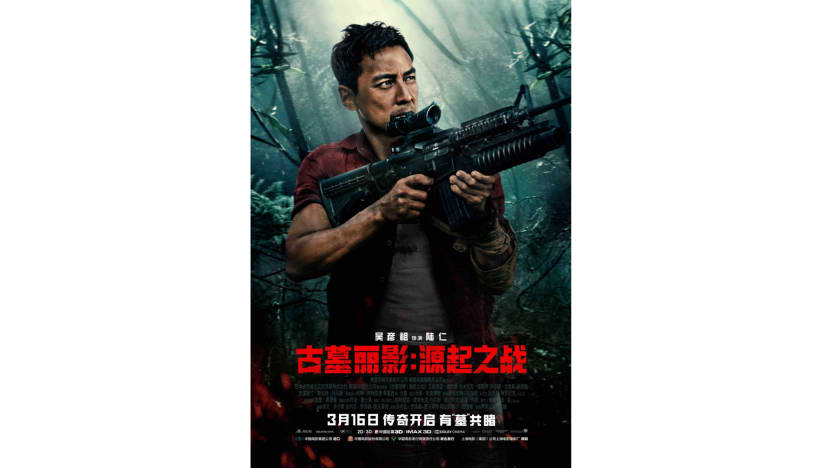
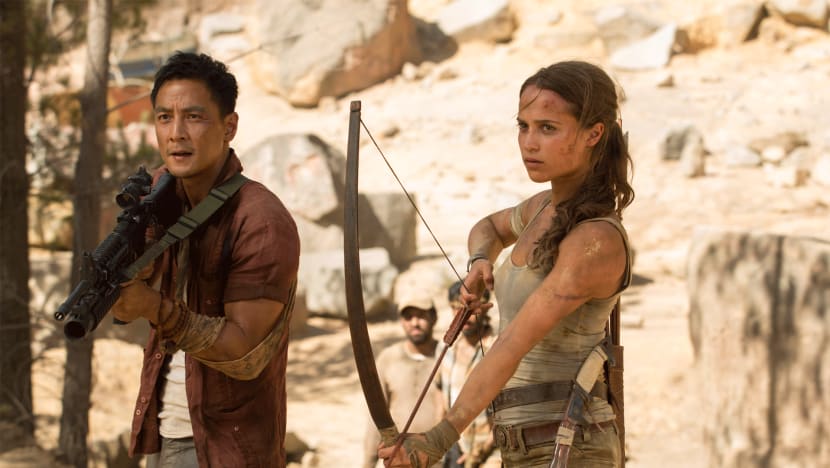
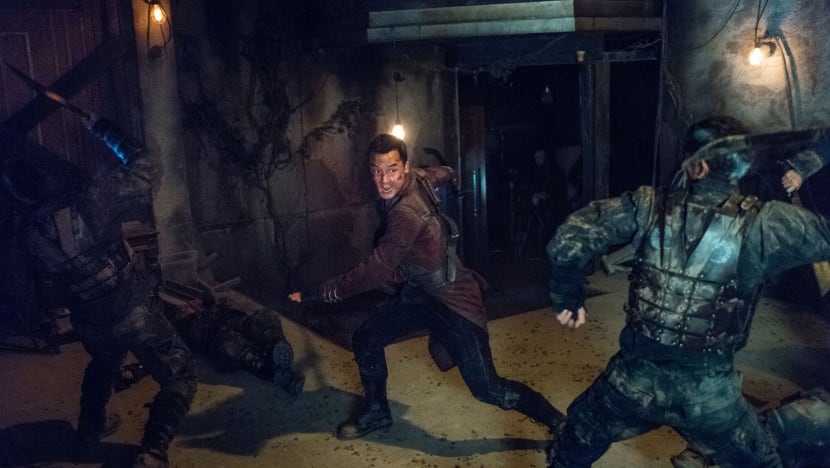





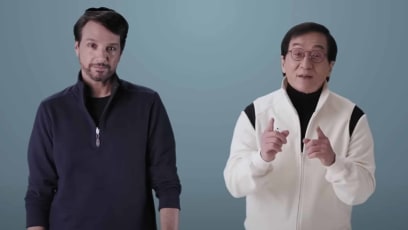
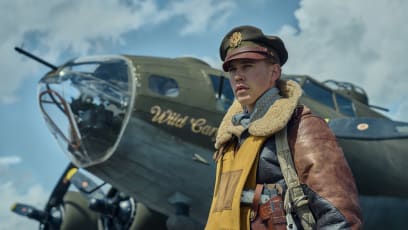

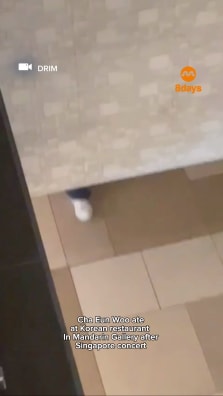


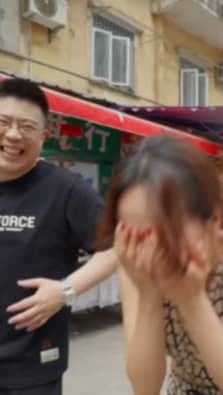
![Boss of Rui Ji chicken rice used to own a tattoo parlour! Talk about a career change! Link in bio to read more
📍Rui Ji Chicken Rice
Blk 93 Toa Payoh Lor 4,
#01-48, S310093
📍148 Beach Road,
#B1-01 The Gateway,
S189720
📍Blk 305 Ubi Ave 1,
#01-179, S440305
[till 16 Apr 2024]
https://tinyurl.com/5dudypkh](https://onecms-res.cloudinary.com/image/upload/s--9s0hbGvI--/c_fit,h_396,w_223/f_auto,q_auto/v1/8days-migration/18015522113203478.jpg?itok=EX3xKSNq)

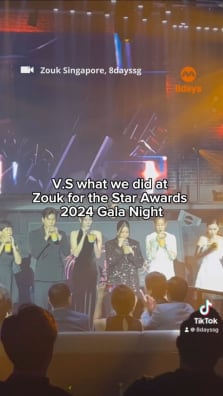
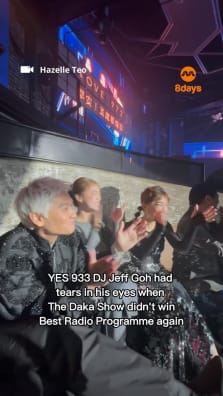


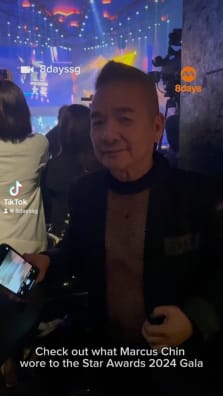
![We stan a kind-hearted boss with a good heart! 💕 Link in bio to read more
📍Rui Ji Chicken Rice
Blk 93 Toa Payoh Lor 4,
#01-48, S310093
📍148 Beach Road,
#B1-01 The Gateway,
S189720
📍Blk 305 Ubi Ave 1,
#01-179, S440305
[till 16 Apr 2024]
https://tinyurl.com/5dudypkh](https://onecms-res.cloudinary.com/image/upload/s---y3eV-Ts--/c_fit,h_396,w_223/f_auto,q_auto/v1/8days-migration/17999638880322602.jpg?itok=Tiqm3SVR)

